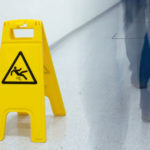Nursing students have a lot of chances to evolve and acquire further academic and professional titles. Today nursing has been one of the top-developing health sciences in the United States and around the world. A vast population of retirees in western developed countries creates the immediate need for new nurses with proper scientific training and experience. A Christian BSN program can fully cover the needs of new nursing students.
Before you register in one of the nursing degree leading academic programs, it would be useful to know more about the various levels of nursing credentials. Here is a beginner’s guide to the renowned levels of nursing in the United States to have a complete view of what you are looking for and what to expect from your degree.
Practical Nursing Certificate
It is one of the basic nursing degrees that leads you to a state license of a Licensed Practical Nurse (LPN). You can choose among thousands of in-class and online degrees available in community colleges across the country. The tuition is always affordable, and you have the option for a student loan when you meet certain financial criteria.
LPNs are the nurses with the highest representation in public and private hospitals. They are close to the patients serving their needs. They also take immediate orders from higher-education nurses and can administer simple OTC drugs in some cases. You will not need more than two years to graduate with an LPN academic degree. It could be your chance to enroll in a higher-nursing educational program and become a Registered Nurse.
Associate Degree in Nursing
It’s the academic degree that paves the way for you to become a Registered Nurse (RN). You will need another two years to spend in a University getting a deeper knowledge of human sciences. These programs also have more clinical practice in hospitals and nursing homes to give you a solid experience.
RNs need to pass an NCLEX-RN exam that is unanimous across the country. However, they still need to file for a board certification to be licensed to work in each particular state. An associate degree in Nursing could also be the first step for you to pursue an academic career since it’s a prerequisite for all the next educational levels.
Bachelor’s Degree in Nursing
Bachelors in Nursing can make you a BSN nurse with the highest degree of nurses working in hospitals and public health organizations. Registered Nurses can complete it only in a State-accredited college or university, spending an additional year in classes, depending on the number of credits they have earned in their previous degrees.
Being a BSN Nurse leads to acquiring a nursing specialization in the surgical, emergency, perinatal, or child care field. BSNs need to expand their state license and typically earn 30% more than the average Registered Nurse. They can also apply for higher nursing positions in hospitals and become head nurses in schools and other sports organizations maintaining a health care unit.
Master’s of Science Degree in Nursing
When being a BSN, it would be easy to register for a Master’s Degree in Nursing at one of the accredited universities around the country. That higher education degree may offer you the option to become either a Nurse Practitioner or a Nurse Educator. Both options could lead you to become a healthcare independent provider working with families to assist them in daily health inquiries and even prescribe a certain amount of drugs or diagnostic tests.
A Nurse Educator could also be employed in Universities and colleges, spreading the knowledge in RNs and LPNs who want to complete their studies and qualify for their state licenses. A Master’s Degree is one of the highest honors a BSN could take, making her an advocate for public health organizations and health policymakers.
Post-Graduate Nursing Certificates and Doctorates
Being a Doctor of Nursing could lead you to an academic career. All BSNs holding a Master’s Degree can further pursue their dreams of becoming a Nursing Professor and specialize in a certain health care science domain.
A postgraduate degree is what you need to start being employed as a full-time professor in the most renowned universities and colleges in the United States. A Ph.D. in Nursing may also open you new ways in the research field and get you employed by biotechnology companies performing basic science research to develop new healthcare devices and ways of treatment.
No matter the level of Nursing education you will pursue, the journey would make you a better person ready to serve the community.













